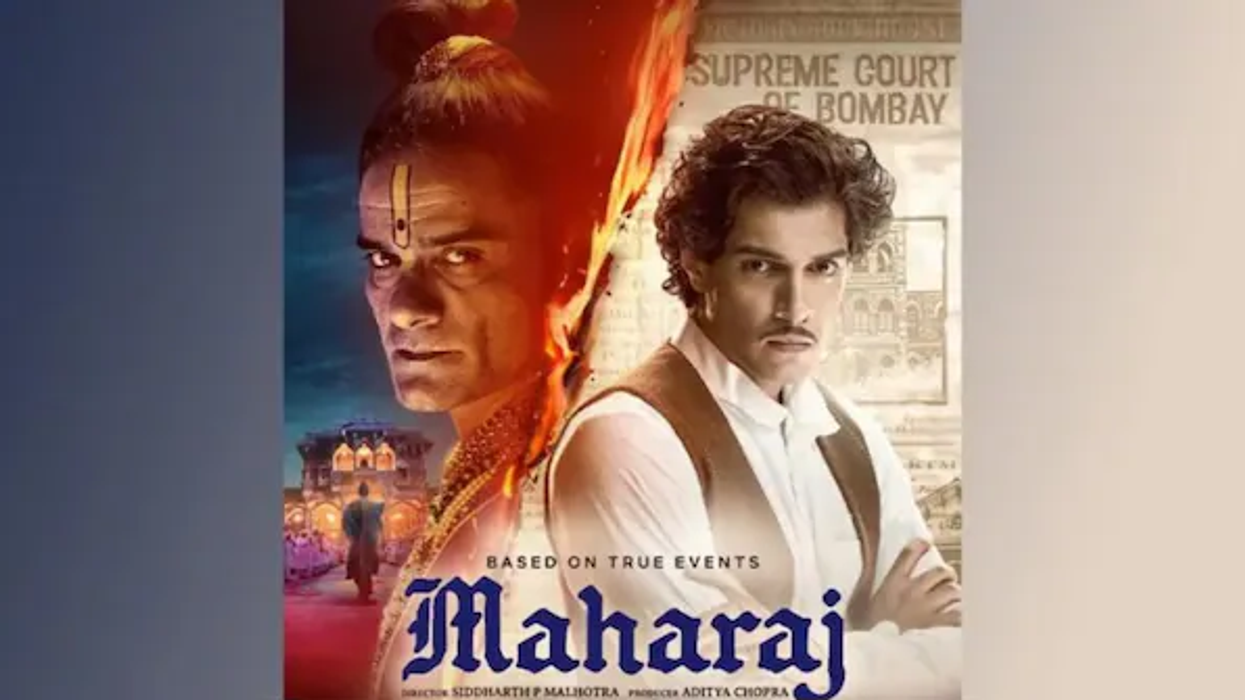The Gujarat High Court has stayed the release of Maharaj, the debut film of Bollywood star Aamir Khan's son Junaid, on Netflix after followers of Pushtimarg, a Vaishnava sect of Hinduism, claimed that it would hurt their religious sentiments.
A single-judge bench of Justice Sangeeta Vishen on Thursday passed an order against the film slated for release on Netflix on Friday.
The bench also issued notices to the Centre, Netflix, and Yash Raj Films, which has produced the film, and posted the matter for further hearing on June 18.
Eight members of the Pushtimarg sect filed a petition against the release after they came across articles about the film, apparently based on the famous Maharaj Libel Case of 1862.
The petitioners have claimed that their religious sentiments would be "seriously hurt" if the movie is permitted to be released, and it is likely to affect public order and incite violence against followers of the sect.
Appearing for the petitioners, senior advocate Mihir Joshi submitted that the film was based on the "Libel Case of 1862", which was heard and decided by British judges.
He further said that a reference was made to the excerpts from the court's judgment containing scandalous and defamatory language, which affects followers of the sect.
The petitioners pointed out that the British-era court, which had decided the libel case, "castigates the Hindu religion and makes seriously blasphemous comments against Lord Krishna as well as the devotional songs and hymns".
They also argued that the movie sought to be released in a secretive manner without a trailer or promotional events to avoid any access to the storyline.
The petitioners further submitted that if such a movie is permitted to be released, their religious sentiments would be seriously hurt, and it would be an irreparable loss.
Earlier, the petitioners had approached the Ministry of Information and Broadcasting, requesting to take immediate measures to block the film's release. However, there was no response or action from the ministry, it was stated.
The petitioners claimed that the release of the movie based on the Maharaj libel case of 1862 is likely to incite hatred and violence against the Pushtimarg sect, which would be in breach of the code of ethics under the Information Technology (Intermediary Guidelines and Digital Media Ethics Code) Rules, and the self-regulation code of Over-the-Top Technology (OTT).
A representation was also made in April to Yash Raj Films and Netflix by some other trust for a pre-release private screening. But there was no response.
Senior advocate Joshi said the refusal strengthened the petitioners' apprehension, and considering the secrecy maintained by the respondent filmmakers, an adverse inference can be drawn.
Considering the reach of streaming platforms and immediate distribution worldwide, it would be impossible to rectify the damage caused by the release, the petitioners stated.
The 1862 libel case was centred on a clash between a Vaishnavite religious leader and social reformer, Karsandas Mulji, who, in an article in a Gujarati weekly, had alleged that the godman had sexual liaisons with his female devotees.




